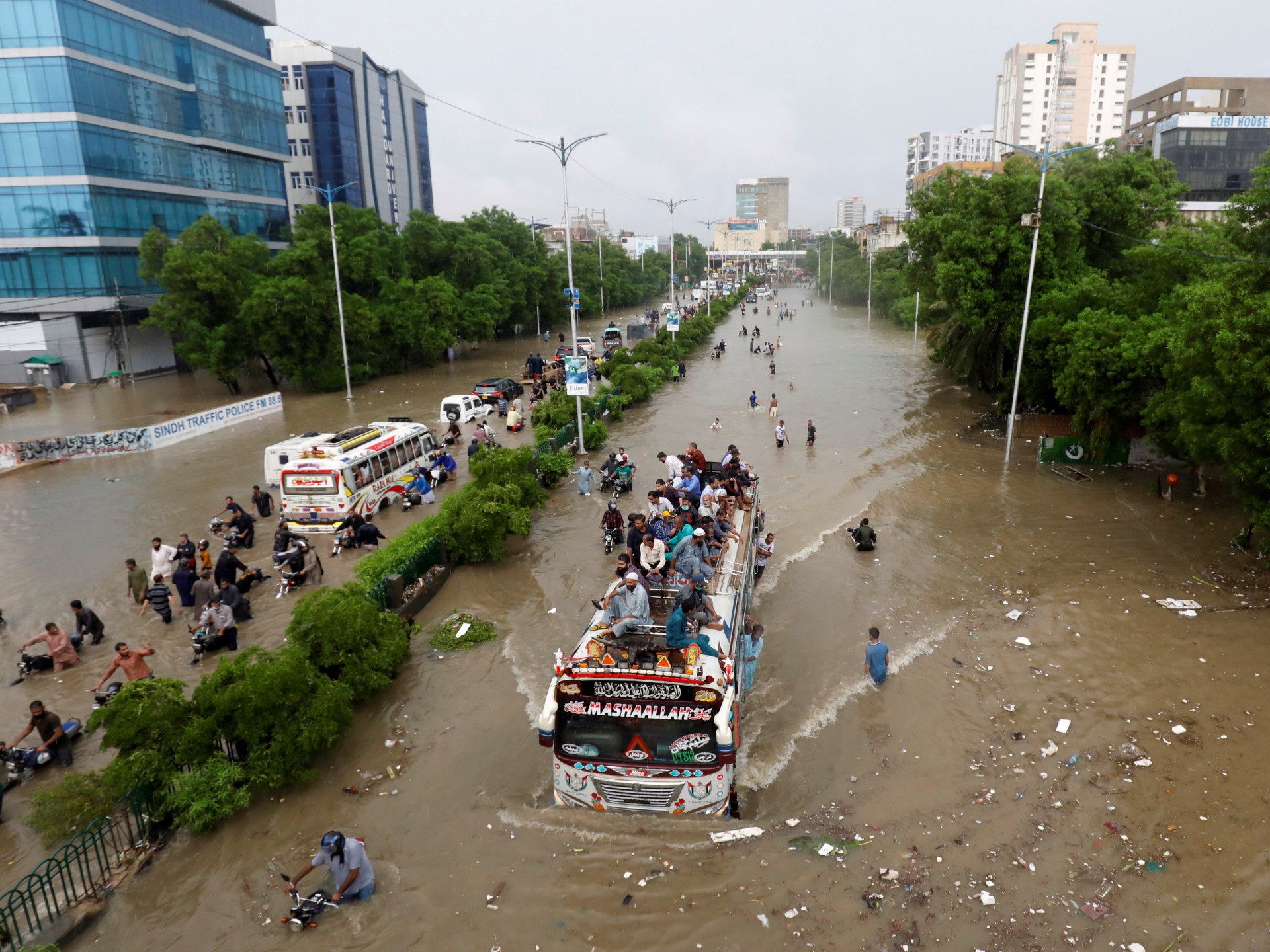Pakistani Prime Minister Shahbaz Sharif said that his country needs unlimited funding to face the effects of the recent floods, and that the difficulties it is facing will continue if there is not enough international support.
While United Nations Secretary-General Antonio Guterres said as he began his two-day visit to Pakistan to inspect the flood-affected areas, the financial support that Pakistan needs is enormous, estimated at $30 billion.
The United Nations had launched an urgent appeal to collect $160 million in aid for Pakistan, as the country's authorities estimated the initial flood losses at $10 billion.
Guterres says Pakistan needs $30 billion in aid (Anatolia)
The Pakistani authorities hope that Guterres' visit will lead the international community to increase its support to help the country cope with the humanitarian crisis resulting from the floods, as a third of Pakistan's area was inundated after months of torrential rains, which Guterres described last week as a "disastrous season".
Guterres, in a tweet from his plane, said he wanted to "stand with people at a difficult moment, encourage international support and draw the world's attention to the catastrophic consequences of climate change."
On Saturday, he is scheduled to visit the flooded areas of the south and the historic city of Mohenjo Daro, which is listed on the UNESCO World Heritage List and is threatened by water.
massive destruction
Pakistan has not experienced this heavy rain for at least 3 decades, and the rainy season, which usually lasts from June to September, is essential for irrigating crops and reshaping water resources in the Indian subcontinent.
Islamabad attributes the massive floods that affected more than 33 million people to climate change, which increases the frequency and intensity of extreme weather events around the world. Icy Express.
Although Pakistan is responsible for less than 1% of the world's carbon dioxide emissions, it is ranked eighth among the countries that face the greatest risk as a result of extreme weather events, according to a study conducted by the non-governmental organization "German Watch".
On the other hand, Al-Jazeera correspondent reported that the local authorities in Sindh province (southern Pakistan) opened a fourth gap in Lake Manchar, whose flooding caused the sinking of about 400 villages and the displacement of about half a million people.
The loophole aims to leak the quantities of water that can no longer be tolerated by the lake's borders, which is the largest natural freshwater lake in the country.
Pictures obtained by Al Jazeera showed civilians trapped inside their homes as a result of the floods.
Lake Manchur, which lies west of the Indus River in Jamshoro District of Sindh Province, is one of the largest freshwater lakes in Asia and is a source of livelihood for thousands of fishermen living in nearby villages.
The floods have so far killed about 1,400 people since June, according to the latest figures released by the National Disaster Management Authority, and washed away about 7,000 kilometers of roads, destroyed 246 bridges, and destroyed or severely damaged 1.7 million homes and businesses.

